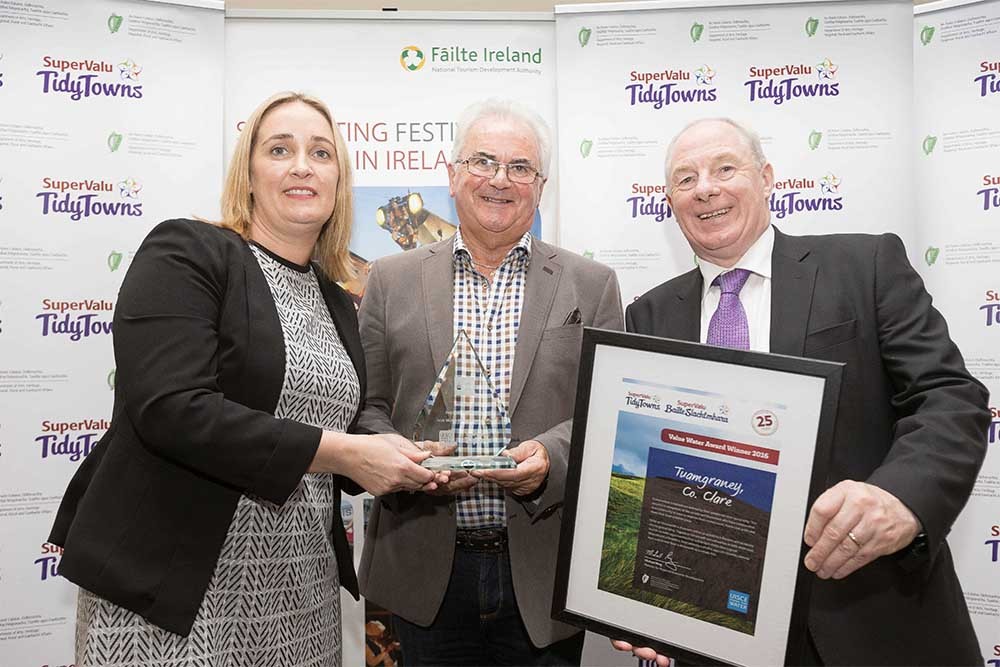
Tuamgraney Tidy Towns group have won the Irish Water Value Award in the Village category at the SuperValu Tidy Towns regional ceremony.
Irish Water is proud to partner with Tidy Towns for a second year and sponsor the Value Water Awards which are hoped will lead the way in inspiring water conservation at a local level.
The Value Water award is about raising awareness of the importance of mindful water consumption within communities and is about reconnecting communities with water, creating a greater understanding of where water comes from and where wastewater goes to.
The community in Tuamgraney received the award for their project which focused on monitoring water usage in the area. The project began in 2014 when members of the local group water scheme started to monitor the water usage of 20 houses on a weekly basis using bulk readings. Weekly checks for leaks were also conducted. As a result, leaks were detected and fixed, filters replaced and pumps serviced. There are also plans to replace old piping in a pump house to ensure optimal operation of the water network
This year’s prize fund of €8,000 for the Value Water Award includes four regional winners for each category and a prize of €1,000 for Best Large Town and Best Small Town. In the South and Mid-West region, Cobh in Co Cork was awarded the Best Large Town Irish Water Value Award and Coolagown, also on Co Cork, received the award in the Village category.
Commenting on the Value Water Awards, Aisling Buckley of Irish Water said: “Congratulations to the Tuamgraney Tidy Towns group on winning the Irish Water Value Award for Best Village in the South and Mid-West region. Irish Water is very proud to sponsor the Value Water Awards for a second year which we hope will lead the way in inspiring water conservation at a local level. The work the Tuamgraney Tidy Towns group has carried out to win the award is truly inspirational, from monitoring water usage to carrying out repairs and upgrades to the local water supply system.
Initiatives implemented by the winners to conserve water included significant reductions in daily water consumption, projects to educate local school children to the importance of conserving water, work by local schools to introduce water saving measures, installation of water butts and rain water harvesting.